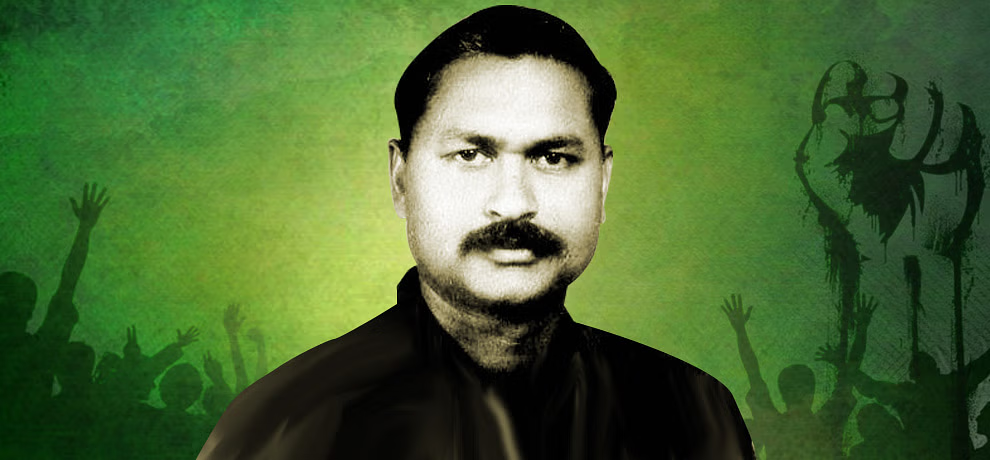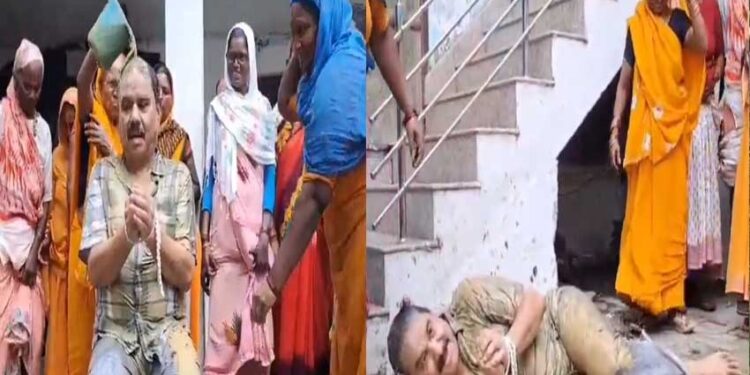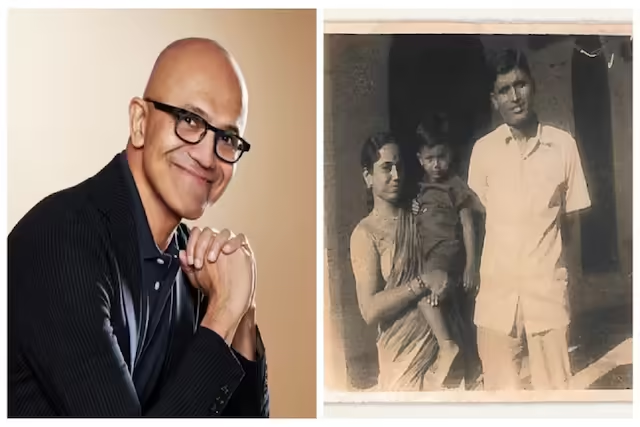Sahitya News Desk !!! Sudama Pandey Dhumil (English: Sudama Panday Dhoomil, born: November 9, 1936 – Death: 10 February, 1975) was a contemporary poet of Hindi. His poems found the most powerful expression of the pain and resentment of the disillusionment of the dreams of freedom. To show a mirror to the system that has cheated the public, as if the poems of Dhumil are the ultimate goal. He was posthumously awarded the Sahitya Akademi Award in 1979.
Life introduction
Sudama Pandey ‘Dhumil’ was born on 9 November 1936 in village Khevli near Varanasi. His ancestors settled in Khevli from far away. Dhumil’s father Shivanayak Pandey was a bookkeeper and his mother Rajwanti Devi handled the house and again. When Dhumil was eleven years old, his father died. Your childhood was struggling. Dhumil was married to Murat Devi at the age of 12. When you passed the high school in 1953, you were the first person of the village to pass matriculation. He could not continue his studies due to financial pressures. His intellectual development continued on the strength of both Swadhyaya and library.
Scope
The search for employment brought ‘Dhumil’ to Calcutta. If there is no work of ding, then the work of carrying iron and going close to the lives of the laborers. When his classmate friend Taraknath Pandey came to know about this work, he in his knowledge, he was a wooden company M / s Talwar Brahmage Pvt. Ltd. Got a job in There he worked as an officer for about one and a half years. Meanwhile, when unwell, he returned home for health. During the illness, the owner asked him to go to Gauhati from Motihari. ‘Dhumil’ refused, handing over his unwell. The owner’s pride said, “I am paying for my work, not for your health!”
Then what was the job of four hundred and fifty hundred and cubic feet, and TA, DA …. ‘Dhumil’ kicked everyone. With this incident, ‘Dhumil’ should understand the attitude and distance of the capitalists and workers. Now his democratic struggle was going to appear in his poem. Dhumil is called the poet of the struggle of Hindi poetry. In 1957, ‘Dhumil’ took admission in the Industrial Institute of Kashi University. In 1958, took the first place from the first class and took the ‘Diploma of Electricity’. At the same time, he was appointed to the post of Electrical Director. Then after getting the same job and promotion, he worked in Ballia, Banaras and Saharanpur. In 1974, when he was working in Sitapur, he became unwell. Due to his clarism and abundance, he had to wrap the authorities. The high officials used to harass them with some or the other due to maintaining their pressure. This pressure became the cause of mental stress of ‘Dhumil’. On October 1974, ‘Dhumil’ was admitted to the Medical College of Kashi University due to unbearable headache. Doctors described him as a brain tumor. On November 1974, he was admitted to ‘King George Medical College’ in Lucknow. Here his brain was operated on, but after that he moved to ‘Koma’ and on this stage of unconsciousness, he became the ruler of Kaal on 10 February 1975.[1]
Language and style
The address of the language of Dhumil also gives him a unique identity and a unique identity from all contemporary mummals and pandy-pran-pranic poets. His poem adds voice to the tone of public struggle in the new Vimb Vidhan and new contexts. From this point of view, his poetic language challenges the justification of social structure. His poetry images are separated from his later poets. They are amazing in their nature and presentation- incense mother’s lap was hot. Saying this, the poet accepts the glory of the mother as the head. In terms of verses, almost all his poems are bent towards prose rhythm. For the purpose of breaking the ingredients and length of the poem, they make the rows small and establish coordination and rhythm by rhymes. The contribution of this person who has given a new attitude to Hindi poetry is memorable and will remain.
Works
Four poetry collections of Dhumil have been published which include-
From Parliament to the street (it was published by ‘Dhumil’ himself), listening yesterday (editing – Rajasekhar) Dhumil’s poems (editing – Dr. Shukdev) Sudama Pandey’s democracy (editing – Ratnashankar. Ratnashankar is the son of ‘Dhumil’. )
The above work ‘from Parliament to Road’ was published by Dhumil himself and the remaining was posthumously published by various publishers.[1]
Angry Youngman of Hindi Poetry
Dhumil’s living was so ordinary that on February 10, 1975, he lost to the sudden death, after hearing the news of his death on the radio, he knew how big a poet he was. At the Manikarnika Ghat in Banaras, only Kunwar Narayan and Srilal Shukla reached at the time of his funeral. In his autobiography, he used to describe his death as uncertain but hundreds of times a day, he came that day and something was such a buried leg. Senior narrator Kashinath Singh says that he was launched by formal higher education and later ‘suffering’ due to the restlessness of learning and understanding poetry that he remained a student throughout his life. He also learned English with the help of his neighbor Nagananda and many dictionaries, so that his poems could also be read and understood. However, he faced the lack of duly study in such a way that despite being a leftist, neither could be free from masculine thinking about women nor should he get a right class in the election of favoritism between villages and cities. Ashok Vajpayee’s collection ‘City is still likely’, then he criticized him by saying that the city is a front, how can that possibility be? But it also got a benefit. The ‘informal information’ made him easy to get out of captivity of the left-made Left perceptions and in the true sense he could enhance the spokesperson of the sorrows and struggles of the farmer life and the warriors of democracy fighting with feudal rites.
In expressing deep disbelief in the ‘revolutionary’ intellectual jugglers of eats and pirates, he also faced serious allegations like ‘generalization’ and ‘advocate of’ directionless blind anger ‘but kept on asking that’ Asanga ‘from difficulties and struggles, how should people be revolutionary Can? He believed that the people of ‘Chand Tuchi facilities’ greedy/the joint family of criminals’ would end one day and with the strength of this belief, they did not even confront the loyalty by accepting the’ chaotic ‘. There is also an interesting intake of searching for forbidden territories and every tradition, civilization, melody, decency and gentlemanship nominated by the tricks system. At his young age, Dhumil had achieved success in the stories of Hindi criticism and turning towards poems by turning towards the stories. It is another matter that his first published composition was a story, which was published in Kalpana, the famous magazine of his time. He was considered a symbol of the self -respect of the litterateurs in Banaras and in which he would be against him. Some people allege that he used to act like Namvar Singh’s Lathait. It is at least true that he did not like to hear anything against Namvar. But even more truthful in view of his nature is that every moment he feels that the Namvar was using him, he would have left him.






